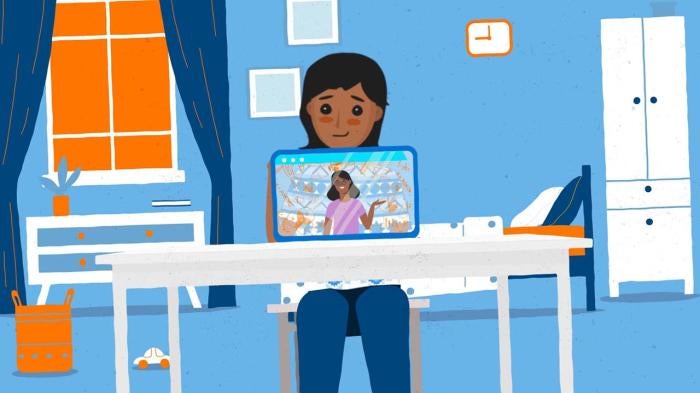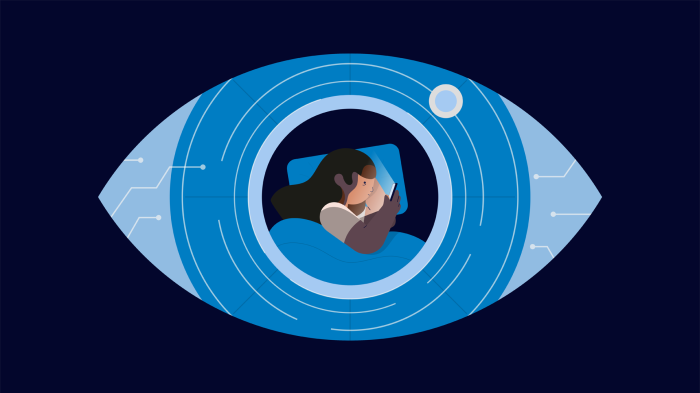Children Tracked While Learning
Read a text description of this video
Meet Laila.
She could be anyone’s child.
Every school day, Laila opens her school’s online learning app, and logs in for class.
Instantly, the app may begin to collect personal data about Laila,
which may include who she is, where she is, what she does, and even who her family and friends are
and may send this data to advertising tech companies.
Their sophisticated algorithms can analyze Laila’s data to guess at her personal characteristics and interests, and predict her future behavior.
Advertising tech companies may sell or share these insights about Laila with advertisers, law enforcement, or governments.
How did this happen?
Covid-19 school closures turned bedrooms and kitchens into classrooms overnight. Governments around the world endorsed the use of education technologies, or EdTech, for kids to continue learning.
But in the rush to connect kids to virtual classrooms, many governments failed to check that their recommended EdTech products were safe for kids to use. Without adequate protections in place, children were compelled to give up their privacy in order to learn.
Governments should urgently protect our children by passing modern child data protection laws.
Human Rights Watch investigated more than 150 EdTech products and found that more than 140 of them monitored or could monitor children, most secretly and without consent.
Many installed trackers that followed children across the internet even after they left their virtual classrooms, outside of school hours and deep into their private lives.
Others invisibly tagged children in ways that were impossible to get rid of, without throwing the device away in the trash.
Laila should be safe in school, whether she’s there in person or online.
Governments can protect Laila by passing modern child data protection laws.
By doing so, they can defend Laila, and all children, from being surveilled online by actors who don’t have their best interests at heart.
Students are priceless, not products.
(Tokyo, May 25, 2022) – Governments of 49 of the world’s most populous countries harmed children’s rights by endorsing online learning products during Covid-19 school closures without adequately protecting children’s privacy, Human Rights Watch said in a report released today. The report was released simultaneously with publications by media organizations around the world that had early access to the Human Rights Watch findings and engaged in an independent collaborative investigation.
“‘How Dare They Peep into My Private Life?’: Children’s Rights Violations by Governments that Endorsed Online Learning during the Covid-19 Pandemic,” is grounded in technical and policy analysis conducted by Human Rights Watch on 164 education technology (EdTech) products endorsed by 49 countries. It includes an examination of 290 companies found to have collected, processed, or received children’s data since March 2021, and calls on governments to adopt modern child data protection laws to protect children online.

